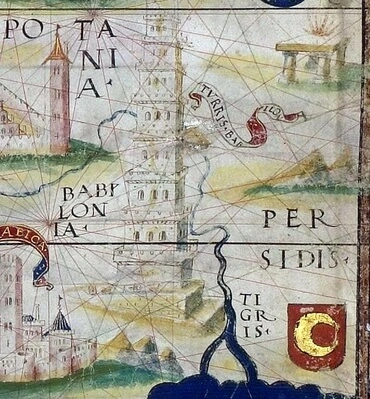1
이에 모든 군대의 장관과 가레아의 아들 요하난과 호사야의 아들 여사냐와 백성의 작은 자로부터 큰 자까지 다 나아와
2
선지자 예레미야에게 이르되 당신은 우리의 간구를 들으시고 이 남아 있는 모든 자를 위하여 당신의 하나님 여호와께 기도하소서 당신이 목도하시거니와 우리는 많은 중에서 조금만 남았사오니
3
당신의 하나님 여호와께서 우리의 마땅히 갈 길과 할 일을 보이시기를 원하나이다
4
선지자 예레미야가 그들에게 이르되 내가 너희 말을 들었은즉 너희 말대로 너희 하나님 여호와께 기도하고 무릇 여호와께서 너희에게 응답하시는 것을 숨김이 없이 너희에게 고하리라
5
그들이 예레미야에게 이르되 우리가 당신의 하나님 여호와께서 당신을 보내사 우리에게 이르시는 모든 말씀대로 행하리이다 여호와는 우리 중에 진실 무망한 증인이 되시옵소서
6
우리가 당신을 우리 하나님 여호와께 보냄은 그의 목소리가 우리에게 좋고 좋지 아니함을 물론하고 청종하려 함이라 우리가 우리 하나님 여호와의 목소리를 청종하면 우리에게 복이 있으리이다
7
십 일 후에 여호와의 말씀이 예레미야에게 임하니
8
그가 가레아의 아들 요하난과 그와 함께 있는 모든 군대장관과 백성의 작은 자로부터 큰 자까지 다 부르고
9
그들에게 이르되 너희가 나를 보내어 너희의 간구를 이스라엘의 하나님 여호와께 드리게 하지 아니하였느냐 그가 가라사대
10
너희가 이 땅에 여전히 거하면 내가 너희를 세우고 헐지 아니하며 너희를 심고 뽑지 아니하리니 이는 내가 너희에게 내린 재앙에 대하여 뜻을 돌이킴이니라
11
나 여호와가 말하노라 너희는 그 두려워하는 바벨론 왕을 두려워말라 내가 너희와 함께 하여 너희를 구원하며 그의 손에서 너희를 건지리니 두려워 말라
12
내가 너희를 긍휼히 여기리니 그로도 너희를 긍휼히 여기게 하여 너희를 너희 본향으로 돌려 보내게 하리라 하셨느니라
13
그러나 만일 너희가 너희 하나님 여호와의 말씀을 순복지 아니하고 말하기를 우리는 이 땅에 거하지 아니하리라 하며
14
또 말하기를 우리는 전쟁도 보이지 아니하며 나팔소리도 들리지 아니하며 식물의 핍절도 당치 아니하는 애굽 땅으로 결단코 들어가 거하리라 하면 잘못 되리라
15
너희 유다의 남은 자여, 이제 여호와의 말씀을 들으라 만군의 여호와 이스라엘의 하나님이 이같이 말씀하시되 너희가 만일 애굽에 들어가서 거기 거하기로 고집하면
16
너희의 두려워하는 칼이 애굽 땅으로 따라가서 너희에게 미칠 것이요 너희의 두려워하는 기근이 애굽으로 급히 따라가서 너희에게 임하리니 너희가 거기서 죽을 것이라
17
무릇 애굽으로 들어가서 거기 우거하기로 고집하는 모든 사람은 이같이 되리니 곧 칼과 기근과 염병에 죽을 것인즉 내가 그들에게 내리는 재앙을 벗어나서 남을 자 없으리라
18
만군의 여호와 이스라엘의 하나님이 이같이 말씀하시되 나의 노와 분을 예루살렘 거민에게 부은 것 같이 너희가 애굽에 이른 때에 나의 분을 너희에게 부으리니 너희가 가증함과 놀램과 저주와 치욕거리가 될 것이라 너희가 다시는 이 땅을 보지 못하리라 하시도다
19
유다의 남은 자들아 ! 여호와께서 너희 일로 하신 말씀에 너희는 애굽으로 가지 말라 하셨고 나도 오늘날 너희에게 경계한 것을 너희는 분명히 알라
20
너희가 나를 너희 하나님 여호와께 보내며 이르기를 우리를 위하여 우리 하나님 여호와께 기도하고 우리 하나님 여호와께서 말씀하신 대로 우리에게 고하라 우리가 이를 행하리라 하여 너희 마음을 속였느니라
21
너희 하나님 여호와께서 나를 보내사 너희에게 명하신 말씀을 내가 오늘날 너희에게 고하였어도 너희가 그 목소리를 도무지 순종치 아니하였은즉
22
너희가 가서 우거하려 하는 곳에서 칼과 기근과 염병에 죽을줄 분명히 알지니라







